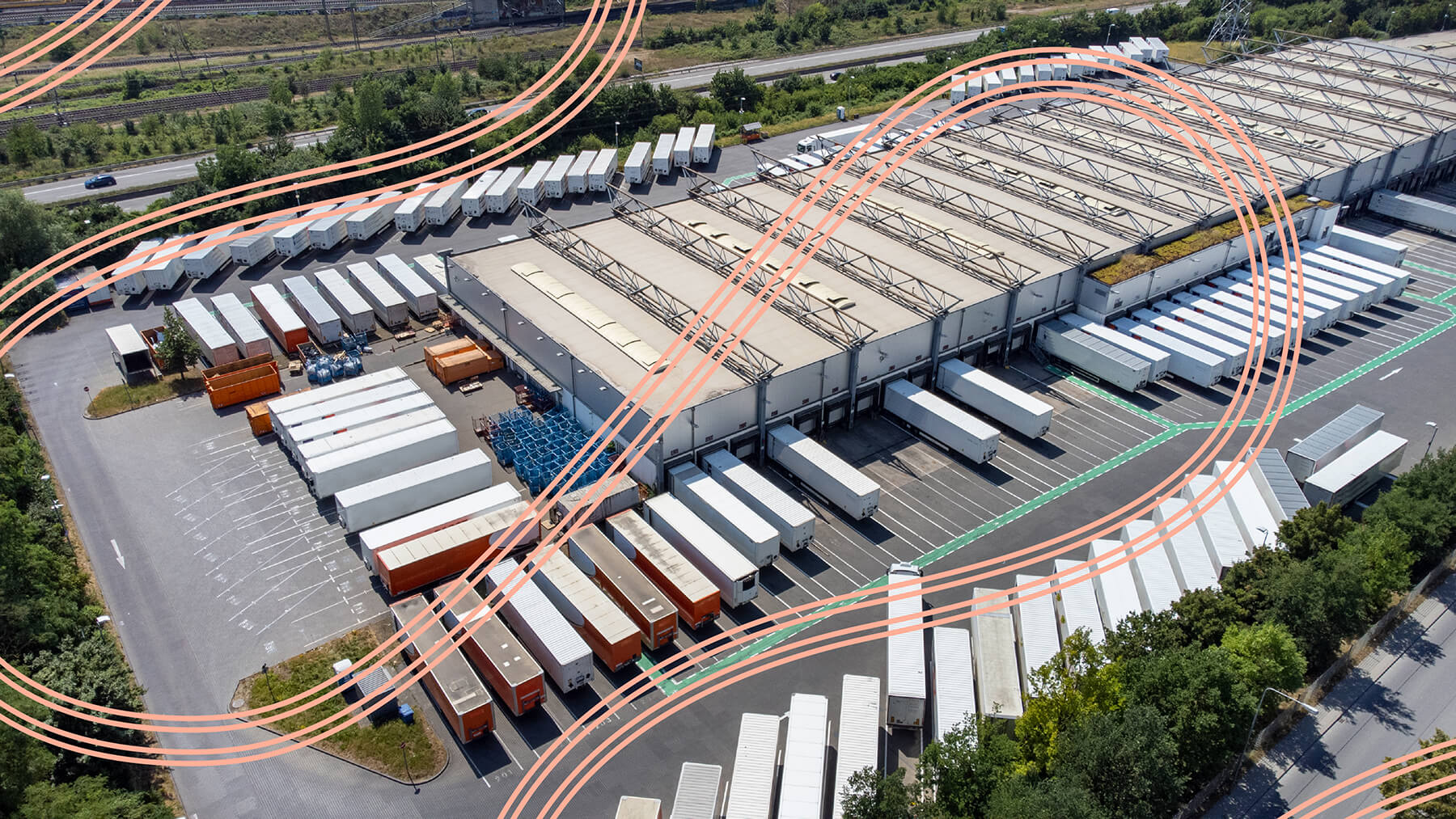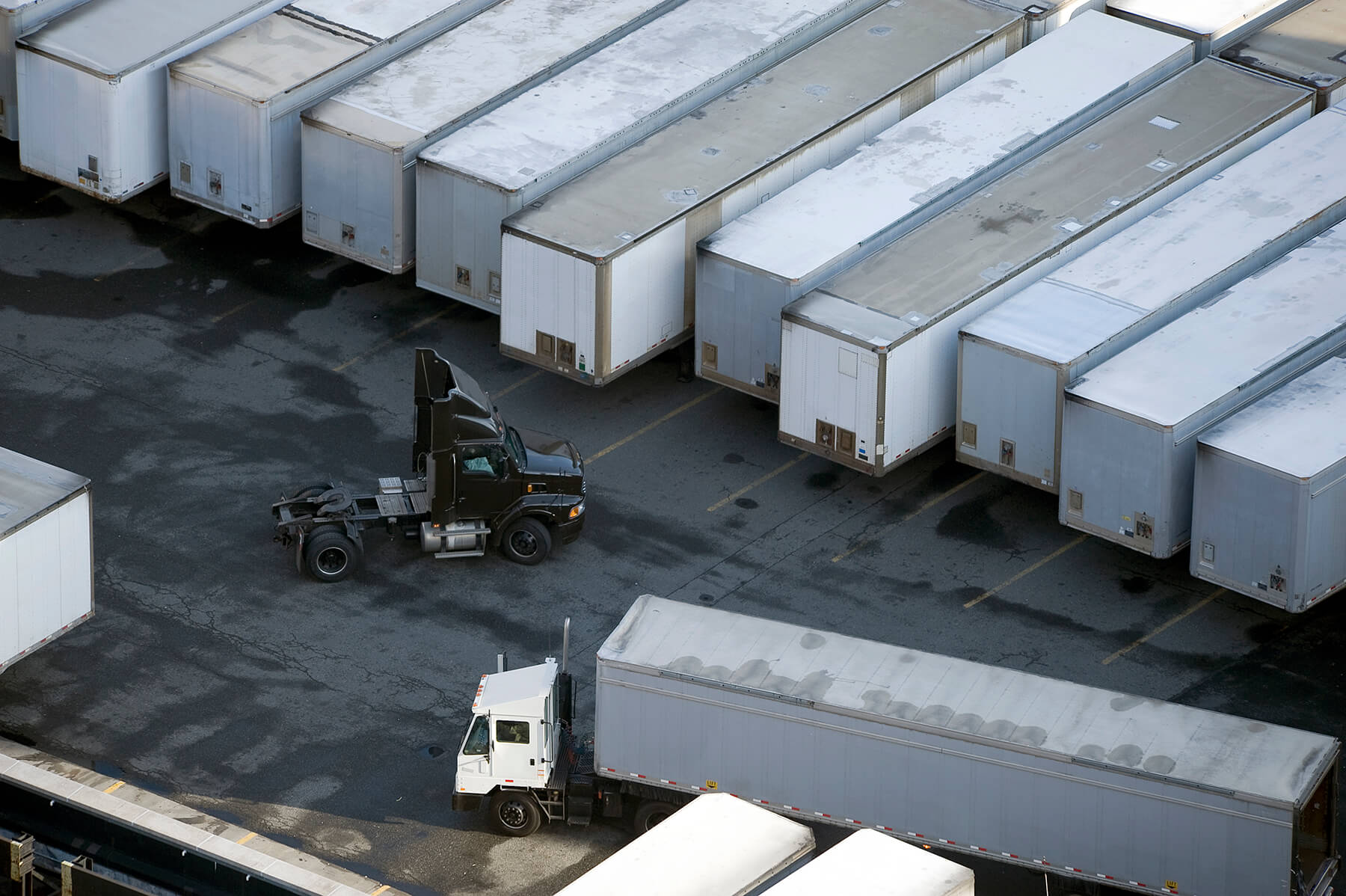
Flex Space is shaking up the commercial real estate game, offering an alternative to traditional warehousing. Businesses are seeing the value and efficiency for this versatile option that bends with their ever-changing needs — for instance, seasonal upticks or project-based demands. But have you considered a Dry Van Storage Trailer or Reefer Trailer as a flexible warehouse or industrial space?
These rental spaces don't just cut overhead; they're about growth opportunities without getting tied down to long contracts. Additional warehouse space is perfect for companies looking for breathing room or established firms needing extra temporary space. Having it located exactly where you want it? Brilliant.
Portable commercial spaces can lower maintenance and overhead costs. Whether you're looking at short term solutions or a long term strategy, there's an even more cost-effective storage solution waiting to realign your business priorities.
Warehouse space morphs with your business needs, expanding during peak seasons and contracting when the rush decreases. That's the beauty of flex space. At COOP by Ryder, we are reshaping how companies approach temporary storage, especially for those dealing with seasonal demands or the dynamic landscape of e-commerce fulfillment. Storage is another versatile and very clever option in the warehousing market utilizing dry van trailers and reefer trailers as storage.
As businesses evolve, the advantages of using flex space become hard to ignore. Using adaptable environments can serve a multitude of functions — from logistics hubs to on-site pop-up space — catering to many different business models seeking scalability. With transportation and versatility at their core, using dry van or refrigerated trailers as flex spaces are solving prime real estate challenges.
What sets this temporary warehouse space option apart is its ability to adapt along with a company's growth trajectory. According to Statista, the e-commerce industry expects a market volume worth over $5 billion by 2028. With real estate costs increasing by 7% - 9%, commercial trailer space offers even greater efficiency and savings by co-locating the inventory to reduce transportation time.
This shift towards flexible storage spaces is a departure from conventional commercial property as business owners now prioritize flexibility and minimal maintenance costs. Many companies see value in trailers as storage solutions — it’s an effective way to manage capital smartly.

Imagine that your business is constantly growing and needing storage options to accommodate its size and profit goals. That's where flex space comes into play. When it is hard to anticipate next quarter, much less the next three years, you need creative industrial solutions.
Smart business owners looking for flexibility can search online for commercial trailer rentals from COOP by Ryder. The platform offers a wide range of vehicle listings tailored specifically to your storage needs and budget considerations. Market knowledge is key here; understanding the use of industrial space and the logistics of transportation make this a near-perfect match.
If you're a business in need of temporary storage, you may be faced with the decision between using a flexible space or a traditional warehouse. While both options provide storage space, there are several advantages to choosing trailers as an option:
Flexibility and Scalability
One of the major advantages of using flex space for temporary storage is the flexibility and scalability it offers. Whether you need small storage trailers or larger ones to accommodate your inventory, flex space can adjust to your needs. Additionally, as your storage requirements change over time, you can easily scale up or down by adding or reducing commercial trailer rentals to fit your plans.
Cost-Effectiveness
Compared to traditional warehouses, flex space offers significant cost savings. With a warehouse, you often have to rent or lease a fixed amount of space, regardless of your actual storage needs. This can result in wasted space and increased costs. Trailers as flex space, on the other hand, allows you to pay only for the space you need, making it a more cost-effective solution. Whether you need storage for a few days, weeks, or months, renting trailers for flex space ensures that you're not paying for unused space.
Convenience and Accessibility
Flex space solutions using trailers provide convenient access to your stored belongings. The trailers offer 24/7 access, allowing you to retrieve or add items to your storage unit at your convenience. Additionally, these short-term warehouses can be conveniently located near your highest traffic areas, making it easier for you to reach your inventory without spending too much time or effort.
Portability
Trailers can be relocated, delivered, or transferred to wherever your business needs them. With COOP, you have many options to ensure that storage trailers arrive directly at your desired destination. This mobility not only streamlines the logistics process but also allows businesses to adapt quickly to changing demands.
Security and Safety
Storage trailers are built to withstand outdoor conditions and can have security features such as heavy-duty locks. This makes them suitable for storing a variety of goods securely, protecting them from theft, weather, and unauthorized access. In addition, reefer trailers are well-maintained and provide climate control options, protecting your items from damage due to weather conditions, temperature variability, or pests.

Constructing a permanent warehouse involves significant upfront costs, such as land acquisition, construction materials, and labor. Trailers can be rented at a fraction of the cost to build or lease. This is really advantageous for startups or growing businesses with limited financial resources or looking to make their budget go further.
When considering temporary warehousing using trailers, there are a few important factors to keep in mind:
1. Assess your storage needs and determine the size and number of trailers required. Consider the nature of your business and the types of products or equipment that will be stored. This will help you select the appropriate type and size of trailers to accommodate your needs.
2. Consider the infrastructure needed to support the trailers. This includes access to utilities such as electricity, water, and loading equipment. Additionally, ensure that the location is suitable for easy transportation and maneuverability of the trailers.
3. Evaluate the security measures that should be in place to protect the goods stored in the trailers. This may include installing surveillance cameras, alarms, and secure locks. Consider the safety of the trailers against risks such as theft, fire, or natural disasters.
4. Weigh the benefits of renting versus purchasing trailers. Rental provides flexibility and eliminates the need for maintenance and storage when the trailers are not in use. On the other hand, purchasing trailers can be a long-term investment if you have consistent and ongoing storage needs or you can list unused trailers for rental for additional revenue streams.
This shift is more than just about being trendy; it’s smart economics too. Flex spaces allow businesses to pivot faster than ever before. Different types of trailers offer several benefits across many industries you didn’t know were needed until now.
Dry van trailers can be a solution to juggling space during peak seasons or growth spurts. These versatile storage units offer scalable solutions, letting businesses pull out more square footage — minus the hefty price tag of permanent structures.
When peak seasons hit, industries like food, beverage, floral, and pharmaceuticals face a hard truth: without the right storage solutions, their products can become a loss. Reefer trailers step in as heroes for these companies offering flexible temperature-controlled environments that keep sensitive goods at the right temperature and extend product availability.
In an era where next-day shipping is becoming standard, having nimble operations can make all the difference. Flex spaces offer scalable temporary warehouse space, ideal for businesses that see significant fluctuations in inventory levels throughout the year. These adaptable environments support a wide range of uses for seasonal stock or pop-up distribution centers.
Businesses not ready to build permanent facilities can rent these mobile dry or cold rooms — a perfect fit for fluctuating demands. By leveraging resources such as the COOP by Ryder rental platform, companies find themselves easily adapting through financial peaks and troughs.
When it comes to short-term warehousing for dry van trailers and reefer trailers, several locations stand out due to their strategic advantages and high demand. Some of the most popular locations:
These popular locations may have a higher demand for short-term warehousing services, leading to potential increased costs. Therefore, businesses should consider factors such as accessibility, transportation infrastructure, proximity to suppliers and customers, and rental rates when choosing a location for their needs.

Flex space refers to versatile equipment or options that adapt swiftly to various business needs for warehousing ts.
Absolutely. With their negotiable rates and cost-effective advantages, flex space rentals using trailers often means savings overinvesting in real estate.
You might hear people call it multi-use or convertible space or even temporary storage; they are all under flexible business solutions.

With these types of warehousing solutions, you've seen how short- or long-term rentals can keep costs down. It’s time to think outside the box with these magical boxes. Flexible spaces adapt to all types of companies.
So go ahead, witness the power of COOP by Ryder as a trusted partner to reshape the approach to your business because this isn’t just about square footage — it's about flexibility that fits right into your business plan.